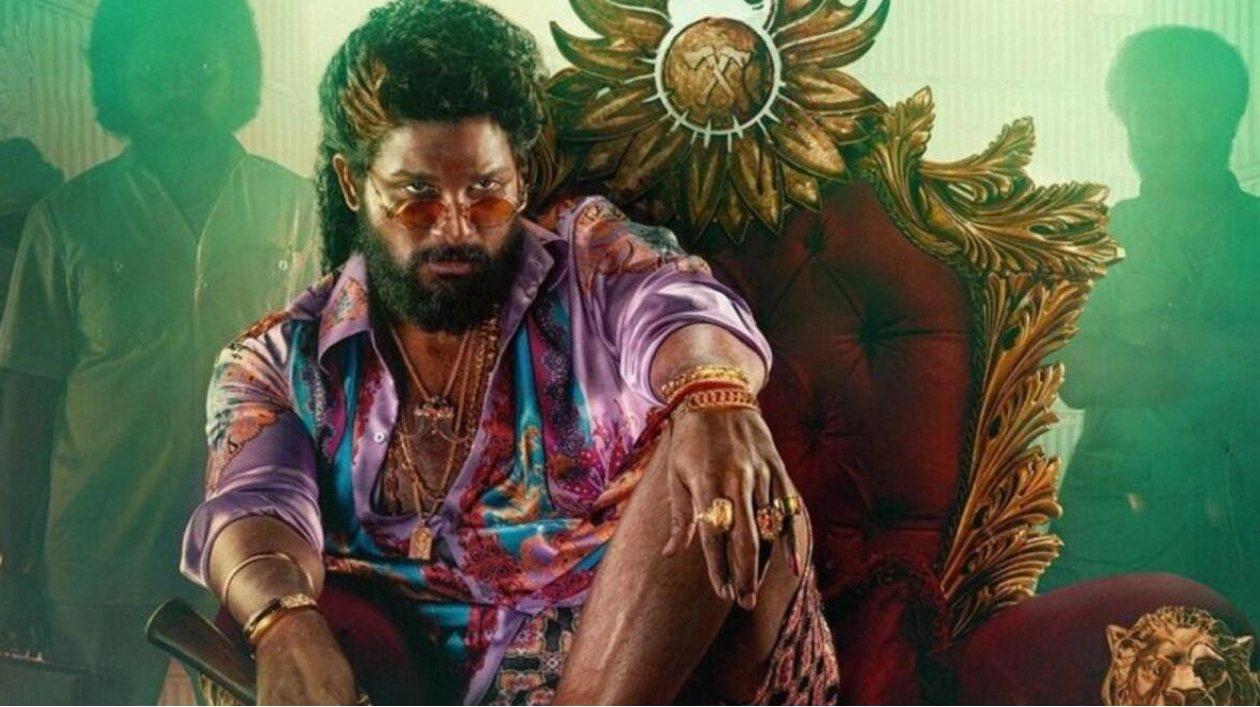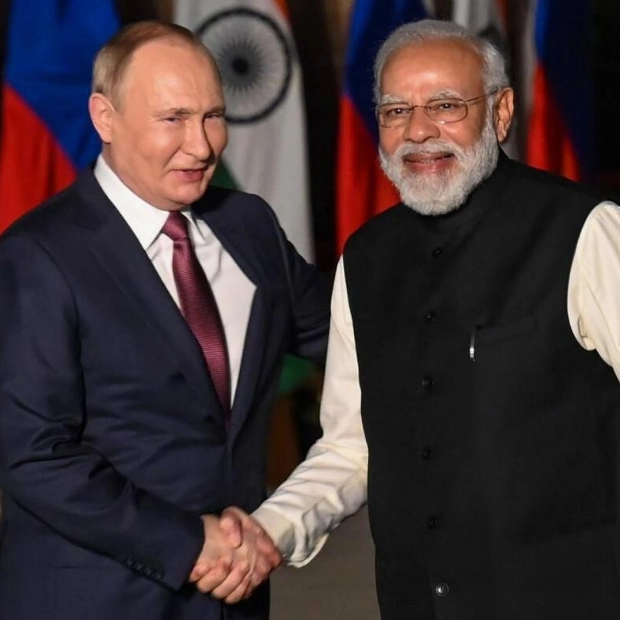Directed by: Sukumar
Starring: Allu Arjun, Rashmika Mandanna, Fahadh Faasil
Rating: 2.5 stars
Does this review or analysis truly matter? After enduring three hours of Pushpa 2: The Rule, the rational part of your mind still feels compelled to dissect the film's strengths and weaknesses. Reality soon sets in, though. The pan-India genre, of which the Pushpa franchise is a prominent part, doesn't require validation from critics. Within a day of its release, the movie raked in approximately Dh7.3 million (INR 170 crore) at the box office. So, any critical analysis is likely to be met with disdain from diehard Allu Arjun fans.
That said, the way Pushpa has resonated with audiences both in India and abroad warrants a closer examination. The first installment, Pushpa: The Rise, released in 2021, laid the groundwork for the titular character (Pushpa Raj, portrayed by Allu Arjun), tracing his meteoric rise from a humble labourer to the pinnacle of a red sandalwood smuggling syndicate. Pushpa's primary grievance wasn't his criminal career but the fact that he was denied a surname by his step-family due to his 'illegitimate' status. Despite this, his ascent in the criminal underworld continued, earning him numerous foes, notably Bhanwar Singh Shekhawat, a relentless cop. The film ended on a cliffhanger, promising a showdown between Pushpa and Shekhawat in the sequel.
Pushpa: The Rise caused a box office frenzy, propelling Arjun, an already renowned Telugu actor, into superstardom. Naturally, anticipation for the second part reached fever pitch. But is it worth the hype? On the plus side, Pushpa 2: The Rule genuinely advances the story. Unlike many Indian sequels that merely capitalize on a popular title, this one builds on the narrative established in the first film. Pushpa has now risen to become a feared smuggler with international connections. The movie opens with a peculiar scene in a Japanese port (why Japan?) where our protagonist single-handedly takes down a group of cartoonish Japanese port officials and workers. This scene has no relevance to the rest of the film, except perhaps to provide struggling Southeast Asian actors a chance to appear in an Indian movie.
Cut to Andhra Pradesh, where Pushpa's rule is absolute. He manipulates chief ministers at will, jets off to the Maldives to seal deals worth INR 5,000 crore, buys a helicopter from his client, leaving the latter to return in a tempo (why a tempo to the Maldives? Don't ask!), and outsmarts the entire law enforcement to ensure his smuggled goods cross Indian borders unimpeded. His political maneuvers earn him admiration from a fawning journalist who declares, 'Siddappa might be CM, but Pushpa is King.' (Indeed, no wonder journalism is in its current state!).
Pushpa's bravado brings him into conflict with Shekhawat, who seeks revenge for his past humiliation. This segment should have been the highlight. The pre-interval scenes, where Pushpa and Shekhawat engage in a battle of wits and brute force, are quite entertaining. Pushpa's forced apology to Shekhawat, followed by his immediate comeback after feeling remorseful for bowing to his adversary, is actually quite engaging. One might even see the storyline as a subtle commentary on men's fragile egos and the absurd things they do to uphold them. However, Pushpa isn't that kind of film.
Had it been handled with the finesse it deserved, the Pushpa-Shekhawat confrontation could have delivered genuine crowd-pleasing moments. Unfortunately, it remains a missed opportunity because director Sukumar isn't interested in exploring the egotism and distorted mental landscapes of borderline 'psychotic' men. Instead, the franchise aims to glorify and idolize Allu Arjun. Thus, despite the formidable enemy, the script ensures that Pushpa always emerges victorious, regardless of the situation. This is a significant flaw, especially since Shekhawat is played by the brilliant Fahadh Faasil, whose quirky characters are legendary (recall Kumbalangi Nights). Here, the actor makes the most of an underwritten role, but the screenplay lets him down. Like the rest of the cast, he exists solely to make Pushpa shine.
Thankfully, Allu Arjun makes it all worthwhile. 'Larger-than-life' seems an understatement for this galactic hero. He is larger than the universe. Every misdeed and criminal act is not just glossed over but celebrated. He dominates every frame, and with good reason. Arjun exudes energy and embodies Pushpa so convincingly that it's hard to imagine any other actor in the role.
One minor improvement from the previous film is that women aren't mistreated as much. The first film had several problematic scenes involving female representation that drew negative reviews, so the makers likely decided to compensate in this one. How? By choosing equally regressive themes! For instance, the hyper-masculine Pushpa is portrayed as hopelessly devoted to his wife, yet the underlying patriarchy is evident. A character advises him, 'A man who listens to his wife has never succeeded.' After a few scenes and some life lessons, Pushpa retorts, 'I wanted to show what happens when a man listens to his wife.' There's also an over-sexualized item number and a fight sequence that allows the actor to save his niece from goons. These elements seem straight out of the '80s and '90s filmmaking playbook.
Nothing else in the film feels contemporary either! The music is loud, the editing is disjointed in several places (it could have used some serious trimming, at least 30 minutes), and the action choreography mainly involves characters flying through the air and Pushpa pummeling the bad guys. All of this unfolds over a mammoth 205 minutes, and while it's entertaining and fast-paced, the overall experience is tedious. But then again, why expect great cinema when you can get swag, more swag, heavy-duty dialogues, and even more swag! The opening credits introduce Allu Arjun as the 'icon star.' And that says it all. He's now coming to a theater near you with the third part of the saga. Get ready!
Source link: https://www.khaleejtimes.com






